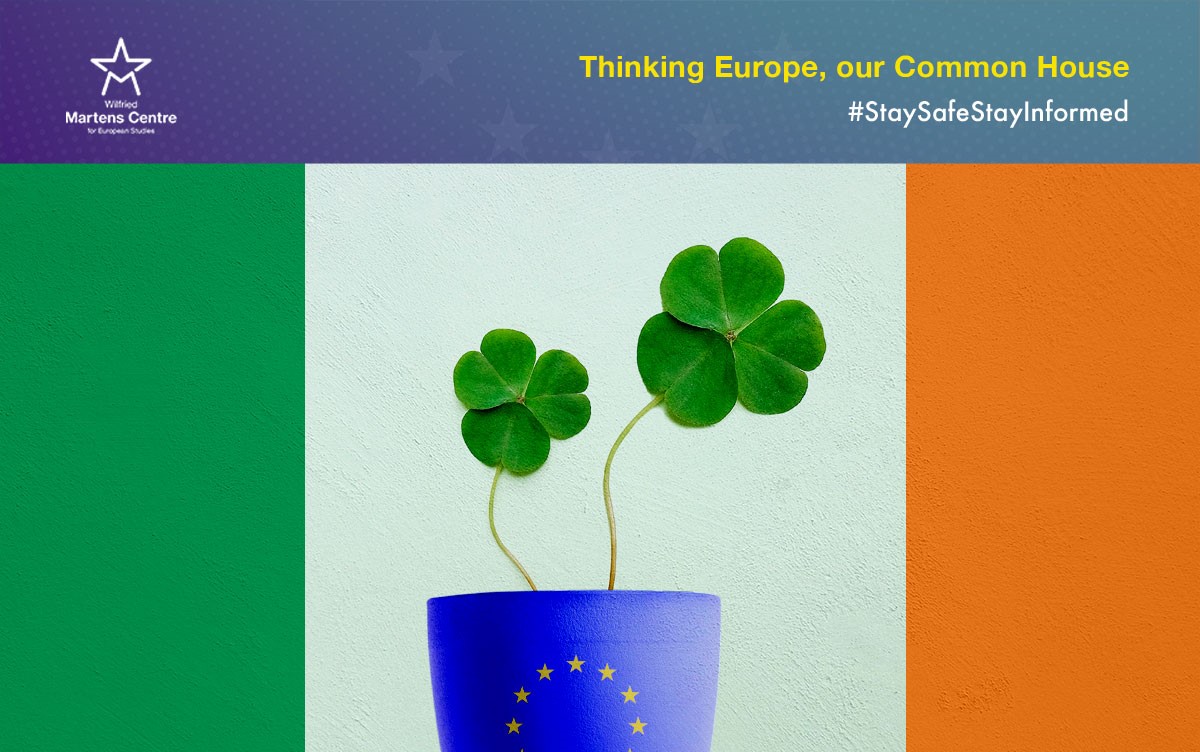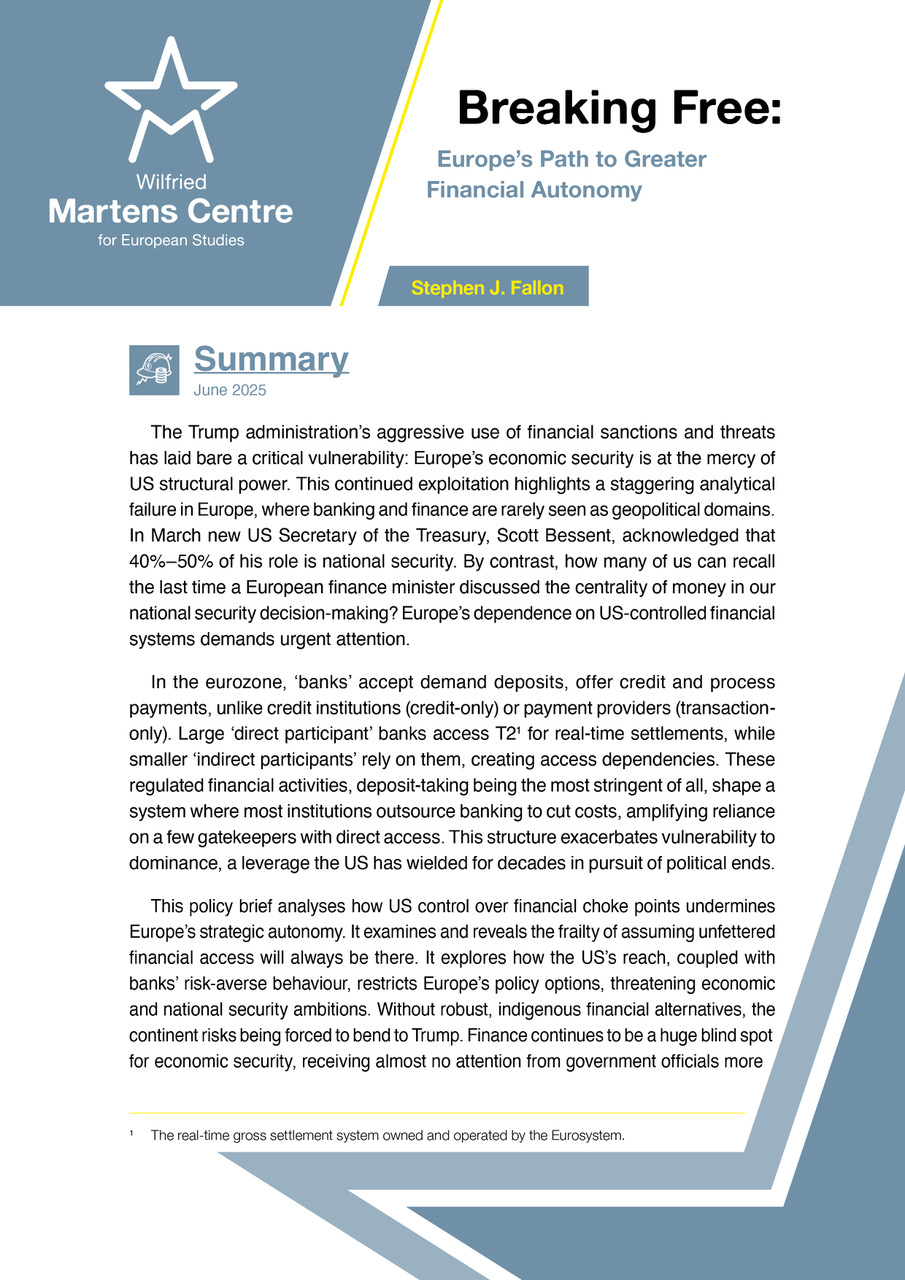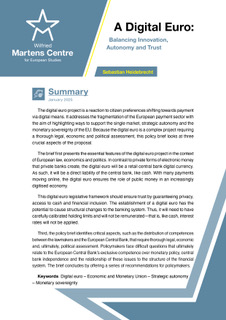Ireland is About to Get a Whole Lot More British
20 January 2021

Who knew that the negative impacts of Brexit could be so easily mitigated by Ireland? After years of conjuring up vistas of hard borders and economic wastelands, Dublin now seems ready, willing, and able to embark on a beautiful European dream.
But such views bely a worrying naivety about Ireland’s real economic and cultural dependencies.
Because Brexit won’t make Ireland more European. It won’t usher in a new dawn of Irish diversification across Europe.
Rather, it will simply reinforce Ireland’s dependence on an Anglo-American economic model. A model which has become the backbone of Ireland’s entire approach to job creation, taxation, and education.
What Brexit actually means is that Ireland is about to get a whole lot more British.
In reality, the recent Brexit trade agreement condemns the British to a process of constant negotiation with the EU. Talks about market access (for the vast majority of the British economy, like financial services) will be a process of perpetual motion. This will be topped off with annual bust-ups over fish quotas and accusations of bullying behaviour from both sides.
Like the Swiss before them, Downing Street will discover the technocratic underbelly of the EU’s Single Market rules-making machine.
But in Ireland’s case, such a degree of uncertainty for British businesses has clear implications. Namely, that Dublin will – slowly, but discernibly – become the focus of British activity in attempting to influence, lobby, cajole, and circumvent barriers to providing services in the EU.
Take Dublin’s Irish Financial Services Centre (IFSC). The success of Ireland’s entire financial services industry was originally based on operating as a satellite location for the City of London. Even today, for all the talk about global diversification, 65% of funds domiciled in Dublin originate from fund managers in Britain or the US. This will likely increase in the years ahead as both New York and London seek the certainty of an operational base in the EU.
Nor will this trend be limited to financial services. Legal advisory services and entertainment/audio-visual services (due to French insistence on excluding British-based providers) are among several sectors where Britain’s presence in Ireland will further increase. Britain is home to about 30% of all TV channels in the EU. Ireland is ideally suited to allow them to continue to operate on a pan-European basis.
In some ways, it’s like the 1930s all over again. Back then, the Irish government sought to use legislation to ensure that new manufacturing industries would be Irish-owned. The dreams were of self-sufficiency and lessening dependence on Britain. The reality turned out to be the establishment of a plethora of British-controlled subsidiaries in Ireland.
British influence on the Irish economy simply continued on in an altered form.
Only by balancing Ireland’s embedded position in the Anglo-American economy with our membership of the EU can Dublin ever hope to build a sustainable, successful, and truly European Irish state.
One other characteristic of the Irish economy will serve to magnify Britain’s role in Ireland in the coming years. Namely, Dublin’s support of US policy priorities on a Brussels stage. Hardly surprising, given that well over 10% of all jobs in Ireland are tied to US multinationals.
But the US also remains a key element of Britain’s more globalist strategy. So Ireland will become the perfect location for an Anglo-US rapprochement, even under an openly pro-Irish President Biden. Shared economic interests – lower business taxes, softer data protection laws, more languid financial regulation – will drive further investments in Ireland as a conduit to influence EU decision-making and restore London’s relations with Washington.
Ireland has proved a reliable cypher for US goals in the past. Brexit will simply enlarge this role to act as a combined Anglo-American advocate on a European stage. Make no mistake, the structure of Ireland’s economy is not continental, it is a distinctly Anglosphere construct, significantly different from the more statist model prevalent in most of Europe.
In Brussels, these trends (and Ireland’s past behaviours) will ultimately reveal a more peripheral and more distrusted Ireland. This view, despite the grandiose protestations of solidarity from the continent, will drive the EU’s engagement with Ireland in the coming years as it seeks to capitalise on the current momentum for deeper integration.
In reality, Ireland’s European future will not be determined by how many continental languages are introduced into the Irish education system, what proportion of Irish exports go to the EU27, or by how many student exchanges Dublin liberally funds (such as students from Northern Ireland).
Rather, it is only by balancing Ireland’s embedded position in the Anglo-American economy with our membership of the EU that Dublin can ever hope to build a sustainable, successful, and truly European Irish state. Ireland should take the lead in developing and leading proposals on issues like data protection and corporate taxes; issues which currently limit the ability of the EU, the UK, and the US to successfully shape global norms.
It’s time Ireland stopped being afraid of Europe. And started believing in the globalist, fair trading model, upon which its prosperity largely lies.
However, the quest to become more European cannot ignore the much longer-term economic relationships that link Ireland to Washington and London. Ironically, far from setting Ireland free from Britain, Brexit will do much to remind Dublin of the older economic ties that bind.
ENJOYING THIS CONTENT?





















